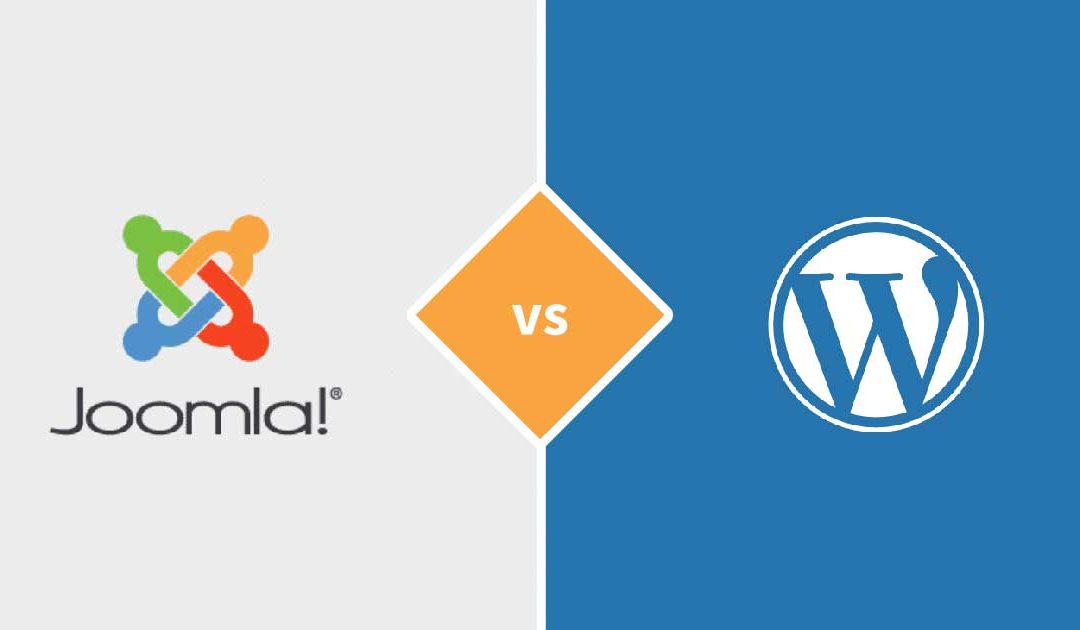Are you trying to decide between Joomla vs. WordPress for your next website? While there are tons of good reasons to use WordPress, we recognize that WordPress is not the only content management system that helps you create a website.
We will investigate each content management system and give you a better idea of the pros and cons of each platform.
Did you know that WordPress already powers more than 33% of all websites?
We are proud to be able to work with the industry greats such as GE, Intuit, TripAdvisor, and Buffer.
Joomla vs. WordPress: Introduction and What the Numbers Say
Both WordPress and Joomla are open source content management systems that have existed for more than 10 years.
Originally launched as a blogging platform in 2003, WordPress is now a multipurpose content management system that powers more than 33% of all websites on the Internet (including much more than just blogs!). In terms of market share, of the content management systems market, WordPress has an even more dominant market share of 60%.
Released in 2005, Joomla is almost as old as WordPress. Behind WordPress, Joomla is the second most popular content management system, boosting around 3% of all websites on the Internet and owning 5.4% of the content management systems market.
While Joomla, for now, still retains the crown of second place, its market share of content management systems has been shrinking since 2010 and its overall share in the website market was reduced for the first time in 2017.
All that to say – WordPress continues to grow, while Joomla moves slowly in the opposite direction.
What are some of the most important benefits of WordPress and Joomla?
If you do a search for Joomla vs. WordPress, you can find many ideological battles between developers on both sides of the spectrum. In general, these are some of the most common reasons you will see on each side of why a platform is the best:
Benefits of WordPress
Ease of use – In general, WordPress is considered the easiest to use content management system.
- More suitable for blogging – WordPress directly includes a distinction between “blog posts” and “static pages”, while Joomla only includes a single type of “article” that you can manipulate with categories.
- Extensibility – WordPress has by far the largest ecosystem of plugins and themes, which makes it easier to expand your site with a variety of different features.
- Great community support – Because WordPress is so popular, it’s easy to find help through the huge ecosystem of third-party blogs, Facebook groups, and developers.
- Lower development costs – This huge community also means that you can usually make development work a little cheaper.
Advantages of Joomla
More advanced user management – Joomla offers a more advanced system for access controls for users and for user management.
- Flexible for different types of content – Joomla components and modules give you a little more flexibility to show non-standard content types.
- Multilingual support – Joomla has multilingual support built into its base, while WordPress requires you to use a third-party plugin.
- Multiple templates – Joomla allows you to use different templates for different pieces of content, while in WordPress you can only use one theme.
How Can You Extend Your Website with Joomla and WordPress?
Both Joomla and WordPress offer multiple types of plugins that you can use to expand your site:
- Functionality – WordPress calls them plugins, while Joomla calls them extensions.
- Aesthetics – WordPress calls them themes, while Joomla calls them templates.
- The WordPress extension market is bigger in terms of absolute numbers, but both platforms have a great variety.
How many Plugins and Themes does WordPress have?
Currently, WordPress has:
- 54,000+ free plugins in the official WordPress.org directory, in addition to thousands of premium plugins.
- 5,000+ free themes in the official directory of WordPress.org add-ons, in addition to thousands of premium themes.
How Many Extensions And Templates Does Joomla Have?
Currently, Joomla has:
~ 8,000 extensions in the official Joomla extension library.
There is no official Joomla template library, so it is difficult to get a number of Joomla templates available. However, some basic Google searches yield a large number of premium Joomla templates (mostly).
Are WordPress and Joomla Equally Safe?
The central software of both is secure. In addition, each platform also includes plugins or third-party extensions to add additional security, as well as easy-to-use update systems for the control panel to help keep everything updated.
WordPress and Joomla Security
If we compare with Sucuri, WordPress actually did better than Joomla.
Interestingly, 84% of the compromised Joomla websites were running outdated software at the time of infection.
This reinforces the idea that “platforms are not insecure. Outdated platforms are insecure. ”
Migrate from Joomla to WordPress
If you are currently using Joomla and want to migrate to WordPress we recommend that you talk to the Eblana team and we can prepare a proposal to convert your website to WordPress.
Joomla vs. WordPress: Which Is Better?
We think that asking “which is better?” Is a wrong question in itself. Instead, you should ask, “Which platform is best for the specific needs of the website I’m creating?”

